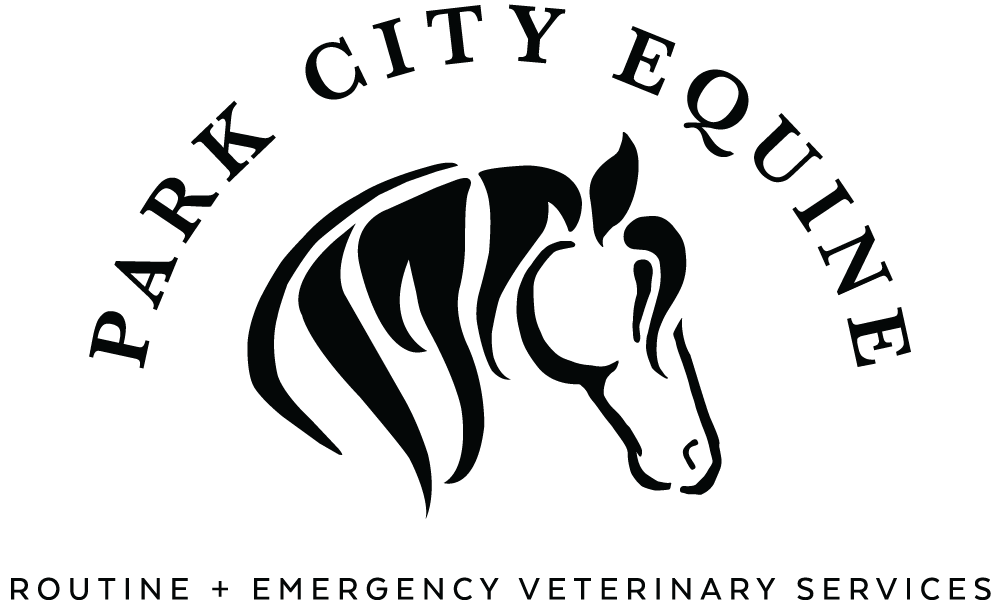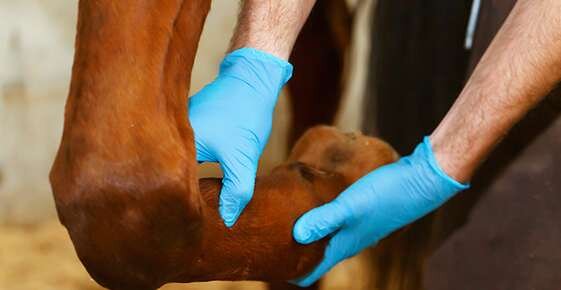Ligament and Tendon Injuries
Ligaments and tendons are important parts of the musculoskeletal system, which also includes the muscles and bones. Together, all these components provide support for the body and enable the horse to move and exercise.
Tendons are very tough bands of connective tissue that connect muscles to bone. Tendons are made of collagen, a special kind of protein, and do not stretch very much.
Ligaments are cords of connective tissue that support and stabilize joints by wrapping around them or connecting two bones together. Ligaments can stretch a little bit more than tendons can.
Both ligaments and tendons can be injured through sudden traumatic accidents or ongoing stress caused by overworking the muscles or joints. These kinds of injuries can cause severe pain and lameness that prevent the horse from moving easily.
Symptoms
Injury to a tendon can occur suddenly (such as during a fall) or over time. With repetitive stress, the fibers of the tendon tear a little bit each time. The body responds to these tears by increasing inflammation in the area, which can further damage and weaken the tendon.
Inflammation shows up as heat, pain and swelling near the injury. An injured tendon may also develop a change in its shape, weak areas, hardening of part of the tendon or tears along the edge.
Some tendon injuries occur suddenly, but, often, there are warning signs that precede a severe tendon injury. These include lameness and abnormalities that can be felt in the tendon. These signs, along with knowing how to do a basic examination of the tendon, can alert owners to possible problems and avoid exercising a horse that is at risk for injury.
As with tendon injuries, ligament injuries may produce warning signs even before the injury becomes severe. These can include foot imbalance and flawed conformation as well as swelling or pain in the area of the injury.
Common Injuries
Injuries can affect any tendon or ligament in a horse’s body. Two of the most common types of tendon injuries include:
Superficial digital flexor tendon (SDFT) injury. This type of tendon injury is common among horses, especially Thoroughbred racehorses. It occurs more often in the forelimb, but can also affect the hindlimb.
Deep digital flexor tendon (DDFT) injury. This type of Injury can occur in both the forelimb and hindlimb. The most common site of injury is within the hoof capsule and the capsule that surrounds the tendon.
One of the most common types of ligament injury is:
Suspensory desmitis. The injury affects the suspensory ligaments, which keep the fetlock joint from overextending. Any part of the tendon can be injured; although damage to the upper part is more common in athletic horses.
Treatment
Treatment for a tendon or ligament injury depends on the location of the injury, but may include:
Therapies to reduce inflammation, such as supportive bandaging, anti-inflammatory and anti-pain drugs, ice therapy and proper rest
Physical therapy and controlled exercise, based on an equine veterinarian’s physical and ultrasound examination of the injury, which should also include frequent rechecks with ultrasound exams
Surgery to correct severe injuries or relieve pain
If you think your horse might be suffering from a tendon or ligament injury, contact our office to schedule a diagnostic examination of your horse.

